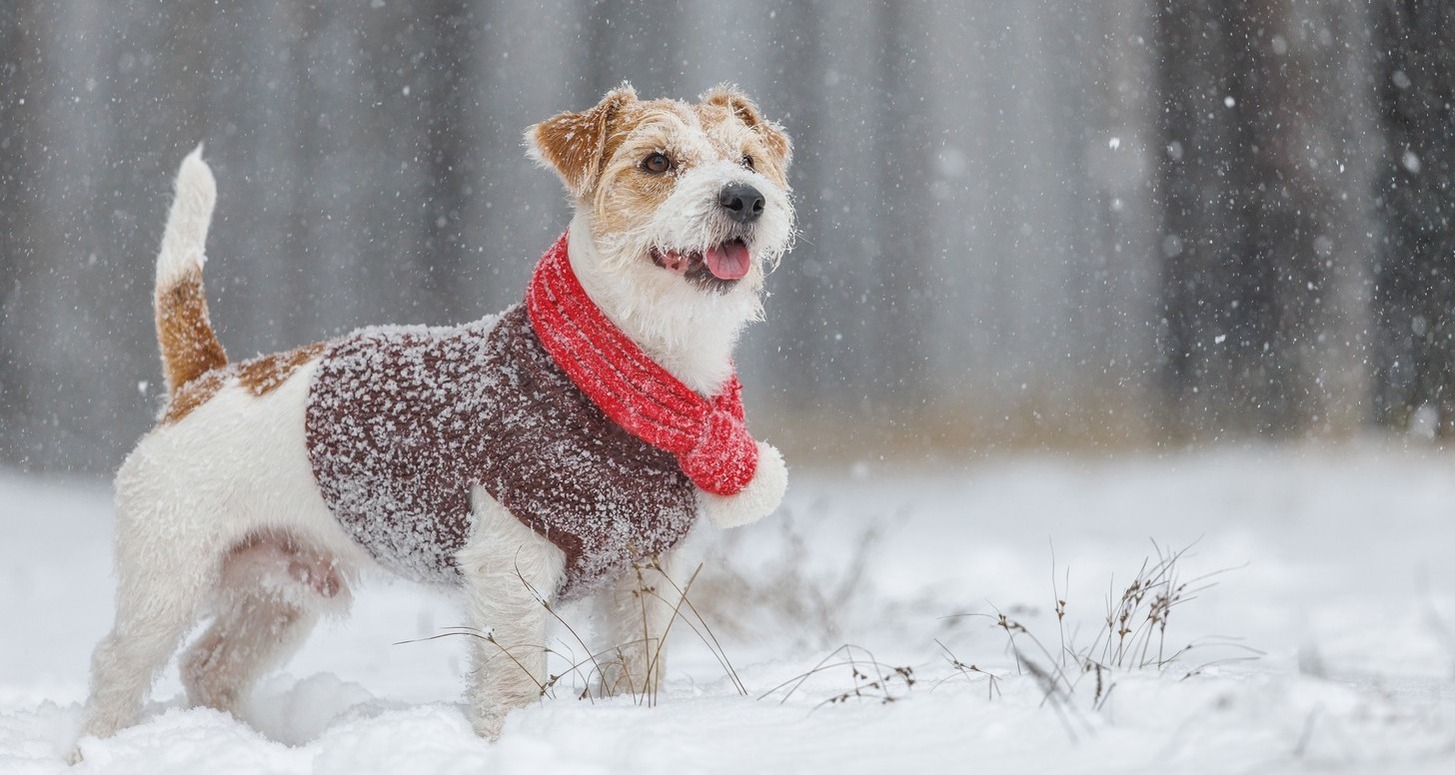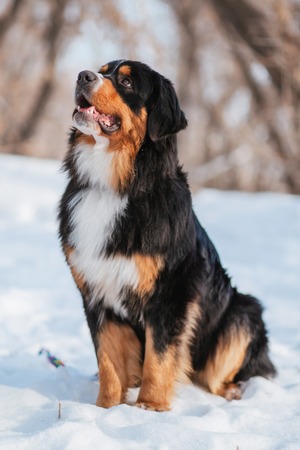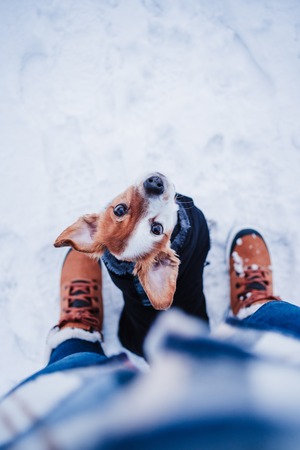Our Top Winter Care Tips for Dogs
December 17, 2024 | By David Jackson

Yes folks, winter is here, and while you may be busy digging out your scarves, gloves, hats and wondering if three pairs of socks are enough to keep your toes warm on your chilly dog walks, it's important not to forget about prepping your pup too.
From sore paws to running the risk of developing more severe conditions like hypothermia, cold weather brings its own set of challenges for dogs. And, as responsible owners, we need to ensure they stay warm, healthy, and comfortable.
Fortunately for you, we've put together this handy Winter Care Guide for Dogs!
So, without further ado, let's take a look at some (p)awesome cold weather dog care tips to keep your pooch doing those tippy tap happy feet all season long...
Table of Contents
Table of Contents
Winterising Your Dog's Routine
Adjusting Exercise and Outdoor Time
 When the temperatures drop, outdoor play and walks require a little tweaking.
After all, even the fluffiest dogs can struggle with freezing weather, which is why it is recommended shorter, yet more frequent walks, especially when it is frosty.
This is so you don't end up exposing them to the elements for too long and always remember, that if you're feeling the cold, your pup will likely be feeling it too.
It's also a great idea to prioritise indoor play and indoor training sessions. A game of tug-of-war, hide-and-seek, or a good old-fashioned zoomie session can help burn off energy without battling the elements.
Meanwhile, regular bursts of training (even just the basics) can work wonders for their mental stimulation and will tire your pup out a lot more than you think. Plus, it's great way to strengthen your bond with your four-legged friend!
Proper Winter Gear and Clothing
Some dogs are built for winter weather.
We're talking Siberian Huskies, Bernese Mountain Dogs, St Bernards, Great Pyrenees, Malamutes, Tibetan Mastiffs and Newfoundlands - the super-duper fluffy bunch with their thick and hardy double coats.
But, not all dogs are so fortunate.
Short-haired breeds, seniors, and puppies often need a little help staying warm.
That's why investing in a well-fitting, insulated dog coat to protect your furry friend from the wind, rain and winter chill is essential.
Paw protection is equally vital.
Salt, grit, and icy pavements can irritate and even injure sensitive paws.
Dog booties might take some getting used to - cue hilarious walking attempts - but they're excellent for protecting those pads and preventing nasty cuts or fissures forming.
If booties aren't an option, paw balm or petroleum jelly can provide a barrier against the elements.
Maintaining Health and Comfort
Hydration and Diet Adjustments
Just because it's cold doesn't mean your dog needs less water. Hydration is just as crucial in winter as it is in the summer. To reduce the risk of dehydration, make sure your dog's water bowl is always full and, if outside, isn't frozen over.
Cold weather may also increase your dog's calorie needs, especially if they're spending time outside or shivering to keep warm.
If you're concerned about how much food you should be giving your dog during the chilly months, consult with your vet about whether slight diet adjustments are needed to maintain their energy levels and healthy weight.
Preventing Dry Skin and Paw Care
 The cold winter air can leave both human and canine skin feeling dry and irritated, and you may find your pup scratching more than usual.
If that's the case, consider adding omega-3 fatty acids to their diet to help keep their skin moisturised. It may also be a good idea to limit baths during winter, as frequent washing can strip natural oils and worsen dryness.
Of course, if your Springer has spent the best part of an hour bounding through the wet fields and rolling in whatever they can find, then you do what you have to do... (definitely not based on a true AADF team story).
After walks, wipe your dog's paws with a warm, damp cloth to remove salt, ice, and chemicals. Check for cracks or redness, and apply a paw balm to keep those pads soft and protected.
Signs of Cold Weather Issues to Watch For
Hypothermia and Frostbite
Cold weather can lead to serious health issues like hypothermia and frostbite. Signs of hypothermia include shivering, lethargy, and pale gums.
Frostbite typically affects paws, ears, and tails - look for discolouration or unusual coldness. If you notice any of these signs, seek veterinary care immediately.
Changes in Behaviour or Eating Habits
If your usually energetic pup becomes lethargic, stops eating, or acts differently after exposure to cold, it's a red flag.
Dogs can't tell us when they're uncomfortable, so keeping an eye on subtle changes is key.
In Conclusion
Winter doesn't have to be ruff for your dog (yes, we went there).
By adjusting their routine, equipping them with proper winter gear, and paying attention to their health, you can keep your canine companion happy, healthy, and safe all season long.
And let's face it, coming in from the cold to a warm home and snuggling down with your contended pup to watch some wintery TV is the bees knees.
Frequently Asked Questions
How can I tell if my dog is too cold?
If your dog is shivering, lifting their paws off the ground, or seems reluctant to keep walking, they may be too cold. Signs like lethargy, whimpering, or curling up tightly outdoors are also indicators. Bring them inside and warm them up gradually.
Do all dogs need coats in winter?
Not necessarily. Breeds with thick, double coats (like Huskies or Malamutes) are naturally suited for colder weather. However, short-haired dogs, puppies, seniors, and smaller breeds often benefit from an insulated coat to help them stay warm.
How long can I walk my dog in freezing temperatures?
This depends on the breed, size, and age of your dog. As a rule of thumb, limit walks to 10-20 minutes in very cold weather, especially if temperatures drop below freezing. Always monitor for signs of discomfort like shivering or slowing down.
Related Blog Posts Section
More From Our Blog
References
A huge thanks to Blue Cross, Dogs Trust and Battersea for all of their research, knowledge and work put into discussing how to keep your dog healthy and safe during the winter months.
|